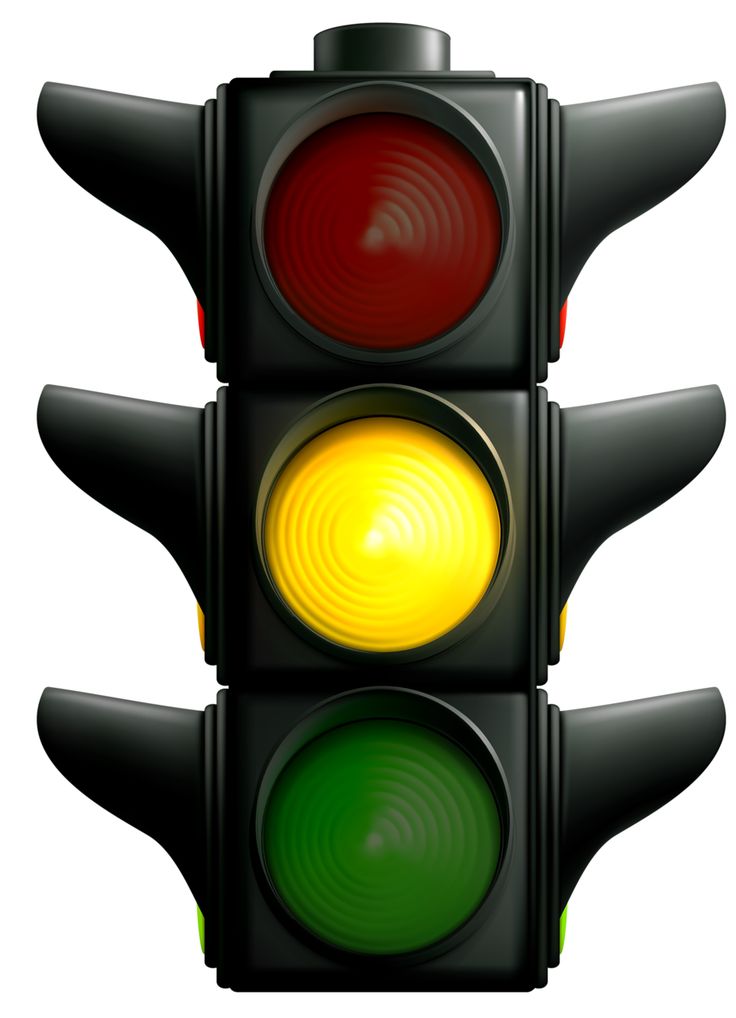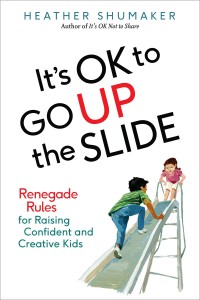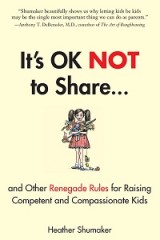Behavior Charts = Poor Adult Behavior

Red light - you're out. When it comes to behavior charts, adult behavior needs to change.
I'm not a fan of behavior charts. You've probably seen them - red, yellow and green stoplight-like charts ubiquitous in preschool and kindergarten classrooms. Kids get put in the red category if they're "bad." The chart is posted in a visible place where everyone can see.
There's so much wrong about behavior charts, I don't know where to start, but most of it comes down to this: adults need to change their behavior.
You're being bad =Vague Moving a child's name from the green/ good side to the yellow and red side of the chart usually doesn't give the child any information except: "I'm in trouble." Many times kids don't know what they did that was wrong or disturbing. Much better to be specific. State what the child was doing and what needs to stop or change. Set a limit. No need to have red and green stop lights to do that.
Targets You know who they are. Usually the same ones day after day. Kids who are restless, need to move their bodies, poke their neighbors or talk. These are often the most active kids. Often boys. Often ones with the least experience with impulse control and social learning. Behavior charts don't change that dynamic, they just put the same kids in red day after day while other kids sail through as green and good.
I'm a bad kid Kids who are repeatedly labeled as having bad behavior tend to internalize and think: "I'm a bad kid. The teacher doesn't like me. School isn't for me." This is a rotten way to start 12-13 years of learning. Learning comes alive with joy, curiosity, encouragement, self-confidence and ability to make mistakes and still be accepted.
Incorrect adult expectations Often, what's wrong is not so much the wriggling child who pokes her neighbor, but the fact that the kids have been sitting too long, perhaps with an un-engaging curriculum. The antidote to that is a different instructional style. If kids are truly engaged, behavior is much more likely to be positive and focused. Try more hands-on learning and more recess.
Respecting needs What's misbehavior? All too often, what adults call misbehavior is simply unmet needs. Young kids have a need to move their bodies. Are we providing that? Is there time and space and acceptance for active children?
Skill learning Behavior charts are a technique to control, but what is the learning goal? Do they teach anything? The only way kids can truly change behavior is by gaining skills (social/ emotional learning; conflict management skills) and gaining maturity. These both take time and practice.
Public shaming Shaming shuts kids down. It doesn't solve problems. It doesn't respect kids. Some kids, often including first-borns, only children, boys, and many others based on personality, are especially shame-phobic. They hate making mistakes and hate public shaming. Shaming kids often backfires.
Loss of recess Depending on the system, getting to red often means something even more terrible: loss of recess. Kids need recess protected for the sake of their own learning and mental health. Read more about recess.
Sometimes I think about how well we adults would do if someone erected a giant behavior chart for us during the day. Scream at the kids getting out the door in the morning (move from green to yellow); get grumpy at someone at the gas station (move from yellow to red); procrastinate and not get something done (we're already lower than red, now we have to skip our coffee break). By 10am, we might be hopelessly irredeemable.
I'm glad there's no Giant Behavior Chart in the Sky hovering over our adult lives. There shouldn't be for children either. Kids have less experience coping with their bodies and feelings than we do. They need useful guidance learning how to express themselves appropriately - and that goes beyond red-yellow-green.
Have any behavior chart stories? What's worked for you getting beyond behavior charts?
Interested? Read more in Heather Shumaker's books on renegade parenting.
